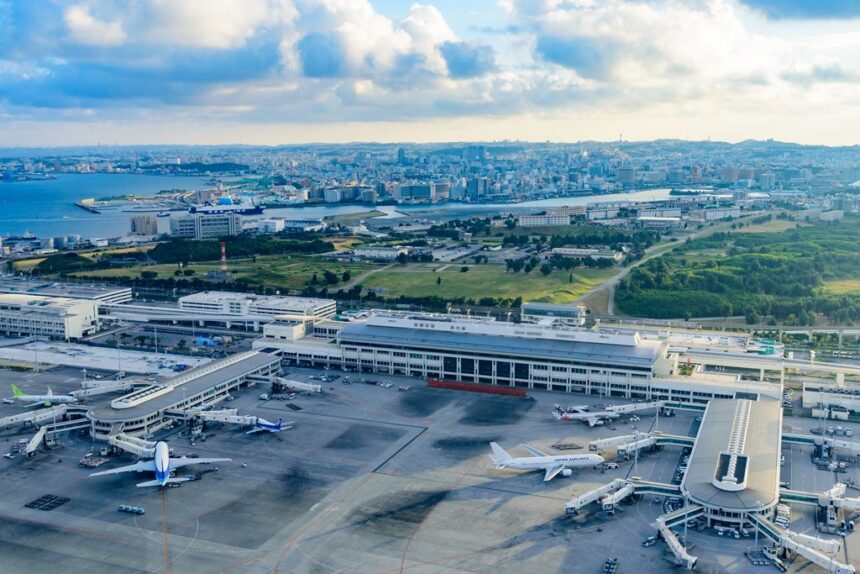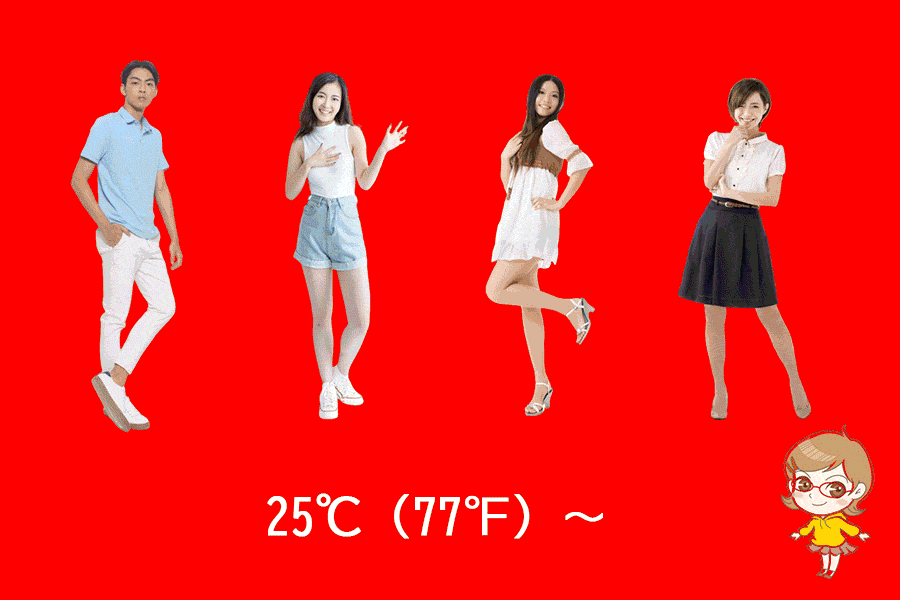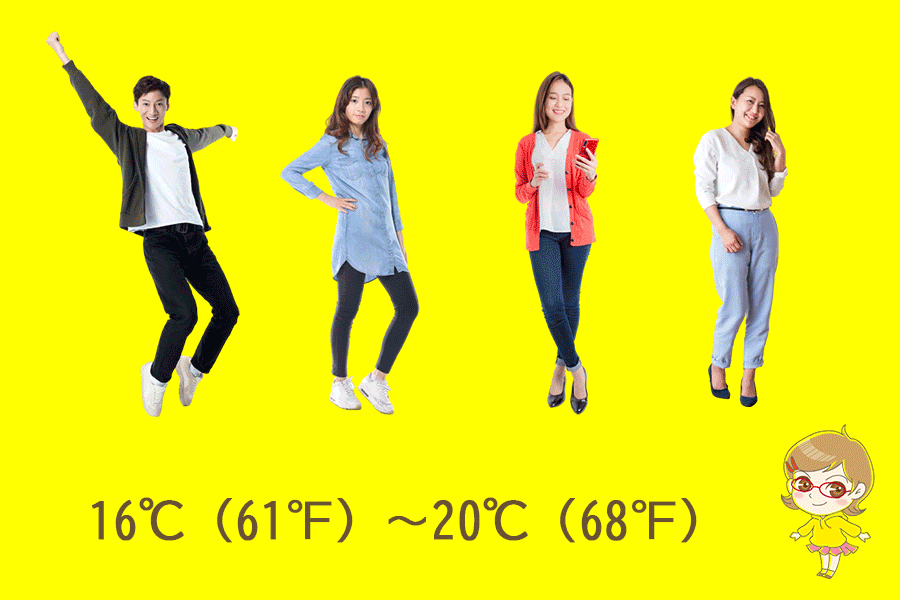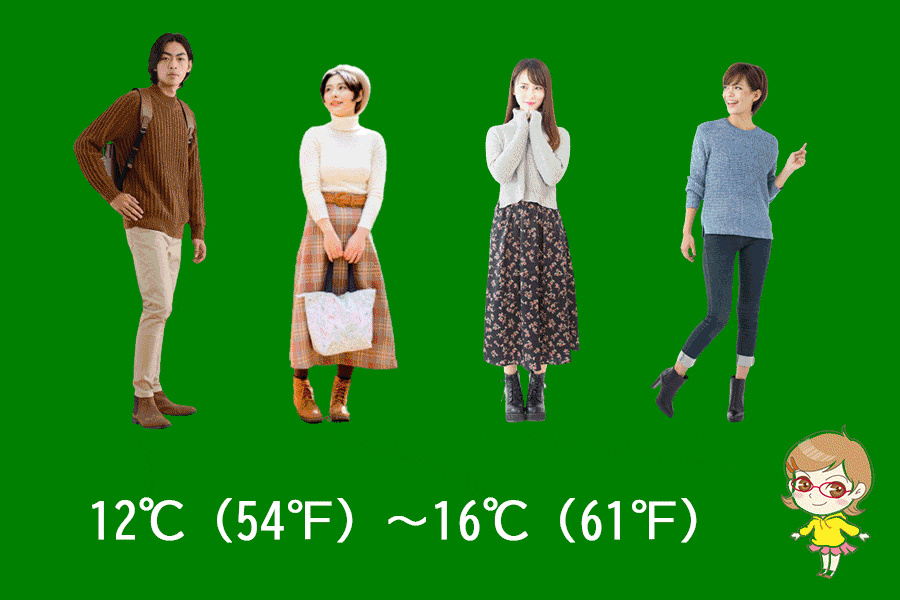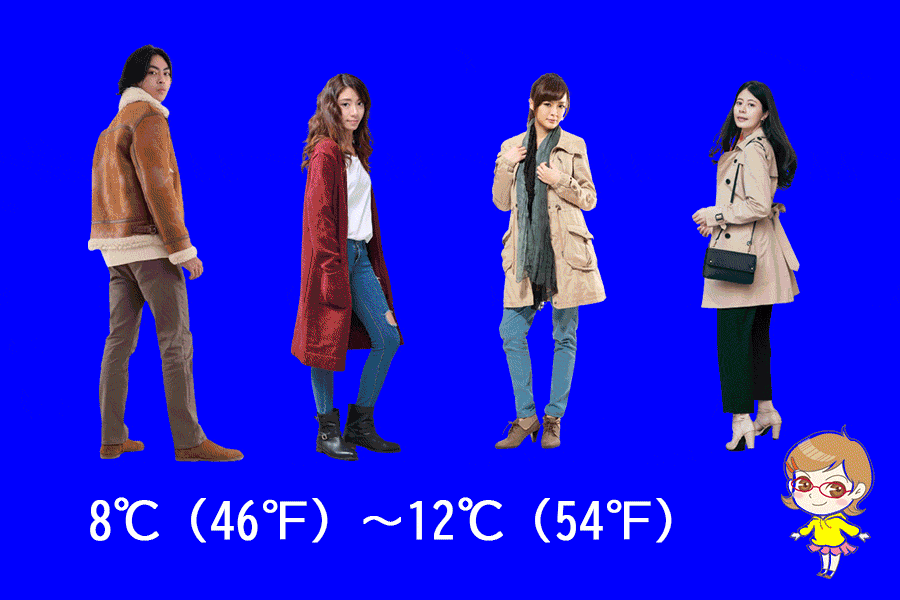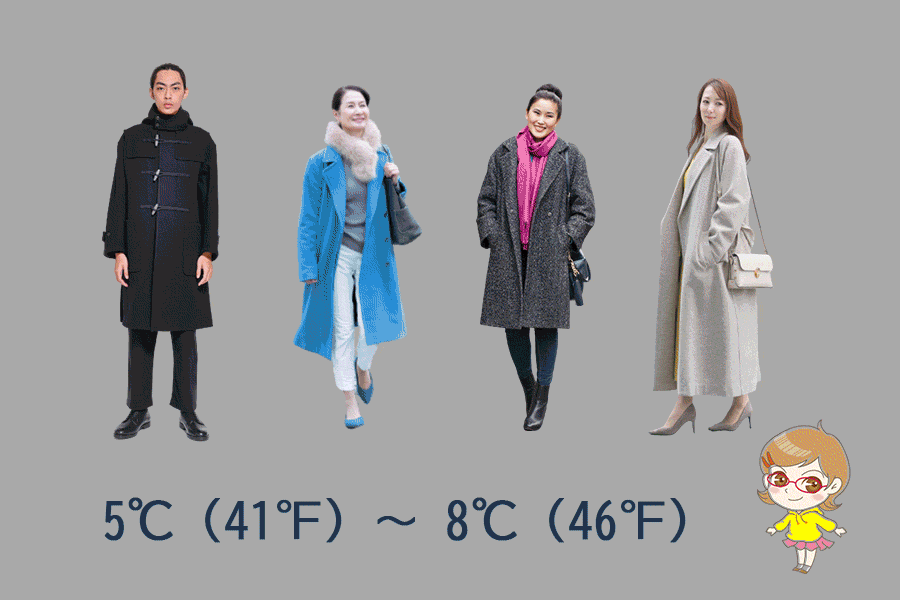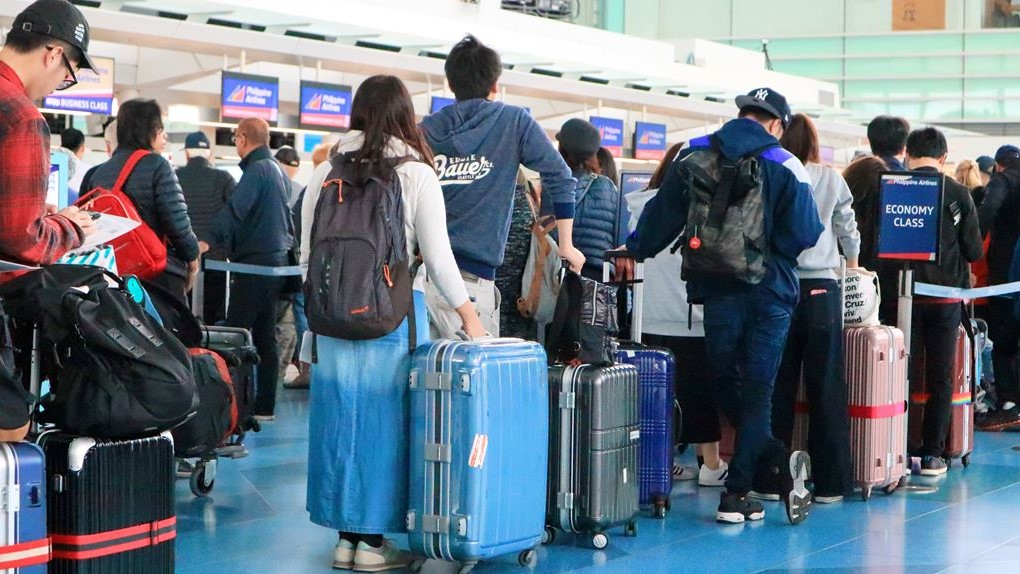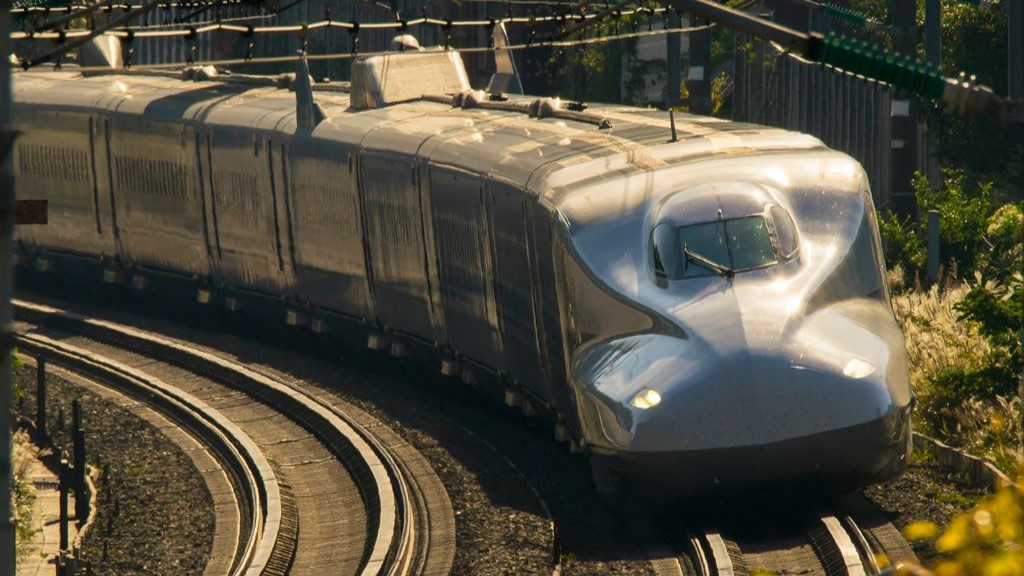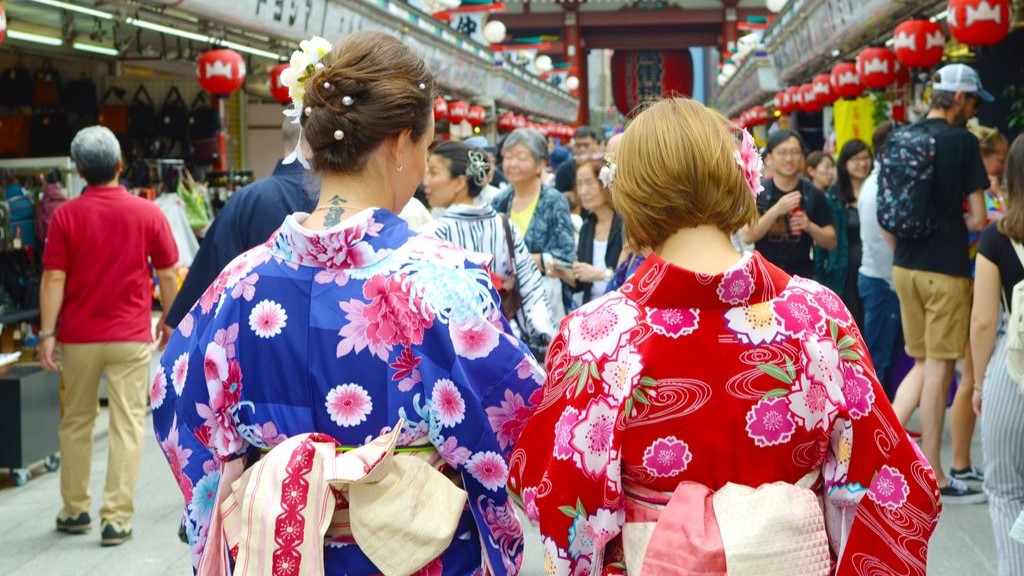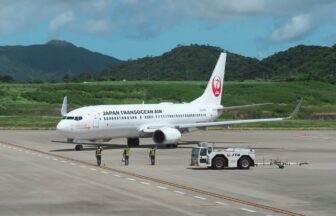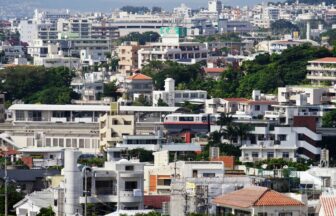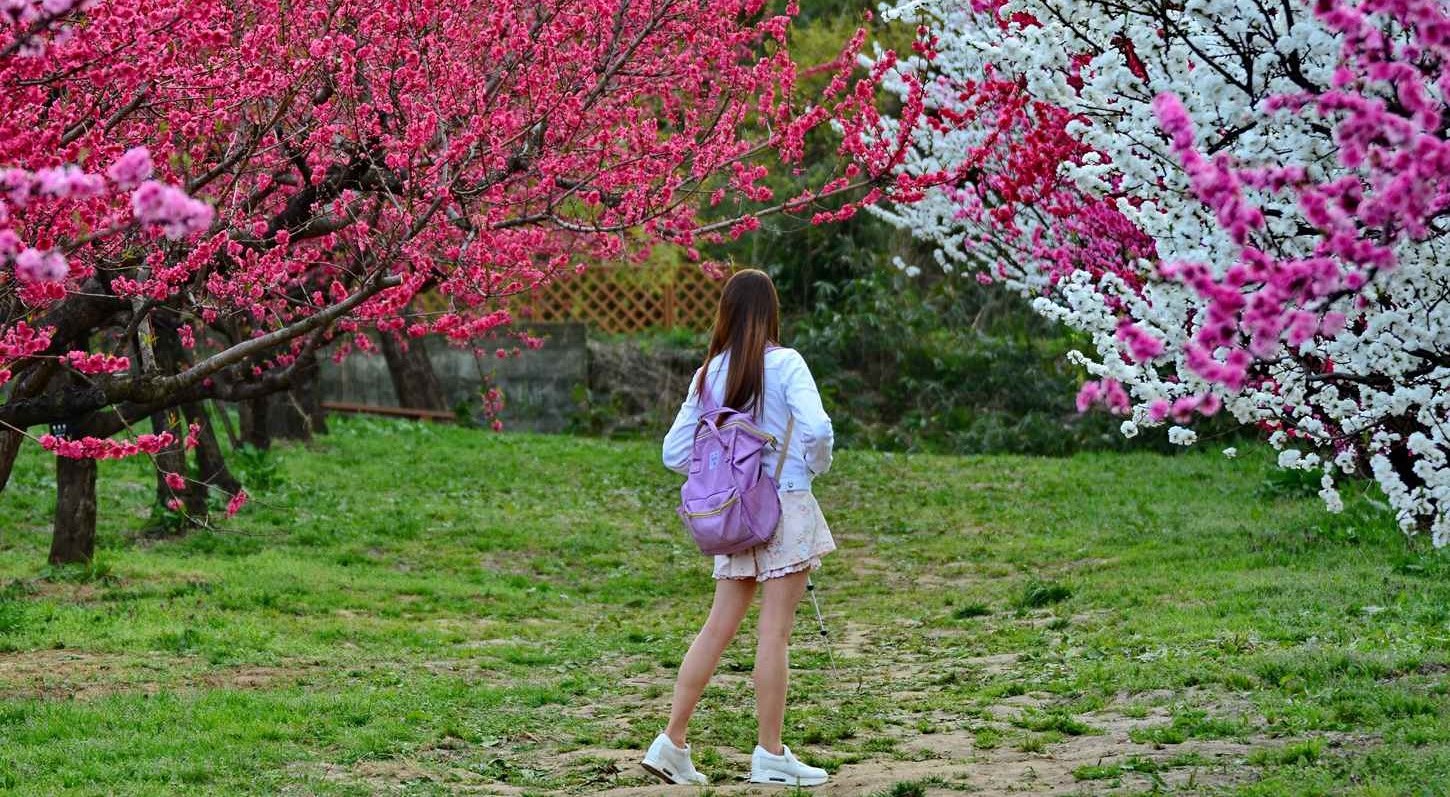150 Kagamizu, Naha, Okinawa 901-0142 MAP
↓ Click to jump to the relevant section.
| Current Weather | Annual Weather | Tourist Attractions |
| Baggage Deposit | Hotels |
Current weather and clothing
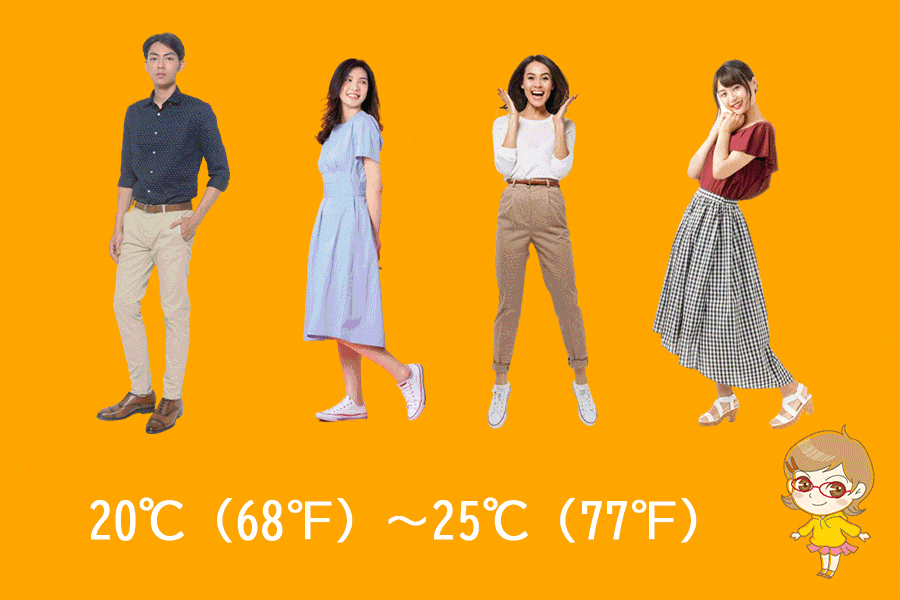
The weather information shown here is the information closest to the station in question. Please note that there may be slight differences.
Yearly temperature changes and recommended clothing
Clothing recommendations for each temperature range
When traveling in Japan with the following average temperatures, the recommended clothing is as follows:
Monthly changes in temperature, precipitation, and snowfall (1991~2020 average, Japan Meteorological Agency survey)
| Jan. | Feb. | Mar. | Apr. | May | Jun. | Jul. | Aug. | Sep. | Oct. | Nov. | Dec. | |
| temperature(°C) | 17.3 | 17.5 | 19.1 | 21.5 | 24.2 | 27.2 | 29.1 | 29 | 27.9 | 25.5 | 22.5 | 19 |
| precipitation(mm) | 101.6 | 114.5 | 142.8 | 161 | 245.3 | 284.4 | 188.1 | 240 | 275.2 | 179.2 | 119.1 | 110 |
| snowfall(cm) | 0 | — | — | — | — | — | — | — | — | — | — | — |
Winter
December
December is a cold month in Naha Airport, with an average temperature of 19°C. The humidity is relatively low, and the rainfall is low, with an average precipitation of 110 mm. The skies are usually sunny, and the sea temperature is around 23°C. During December, it is recommended to wear medium-weight clothing made of breathable fabrics such as cotton or wool. Long-sleeved shirts, pants, and skirts are suitable for both men and women, with a warmer jacket or sweater for the evenings. It is also recommended to bring a scarf and gloves, especially if you plan to visit the northern part of Okinawa, as it can be colder there.
January
January is a relatively cool month in Naha with an average temperature of 17.3°C. Average precipitation for the month is 101.6 mm. While it may be chilly, it is not cold enough to require heavy clothing. A light jacket or long-sleeved shirt and pants are appropriate.
February
February is slightly warmer than January with an average temperature of 17.5°C. Average precipitation for the month is 114.5 mm. The recommended clothing for February is the same as that for January.
Spring
March
The average temperature at Naha Airport in March is around 19.1°C, which can feel a bit chilly due to the sea breeze. Precipitation is about 142.8 mm. You will no longer need thick outerwear, and as long as you have light outerwear such as cardigans and parkas, you will be safe. On warmer days, it is comfortable enough to wear a T-shirt, but UV protection is essential in Okinawa where UV rays are strong.
April
April is the beginning of spring in Naha, and the average temperature at Naha Airport is around 21.5°C. The precipitation level is around 161 mm. The weather is mostly sunny and warm, with occasional rain. A light jacket or a cardigan can be useful in the evenings. For women, it is suggested to bring t-shirts, dresses, and skirts along with comfortable shoes. Men can wear t-shirts, shorts, and sneakers or loafers.
May
May is the transition month between spring and summer, and the temperature at Naha Airport averages around 24.2°C. The precipitation level is around 245.3 mm. Clothing suitable for hot and humid weather is recommended. Women can wear t-shirts, shorts, skirts, and sundresses along with sandals. Men can wear t-shirts, shorts, and sandals or sneakers.
Summer
June
In June, the temperature at Naha Airport averages around 27.2°C. The precipitation level is around 284.4 mm, and the weather is hot and humid. It is suggested to bring lightweight, breathable clothing such as cotton t-shirts, shorts, and dresses. Women can bring comfortable sandals or flip flops, and men can bring sandals or sneakers.
July
July is the hottest month in Naha, and the temperature at Naha Airport averages around 29.1°C. The precipitation level is around 188.1 mm, and there is a possibility of typhoons. Lightweight and breathable clothing is recommended to stay cool. Women can wear sundresses, shorts, and t-shirts along with comfortable sandals. Men can wear t-shirts, shorts, and sandals or sneakers.
August
In August, the temperature at Naha Airport averages around 29°C. The precipitation level is around 240 mm, and there is a possibility of typhoons. Lightweight and breathable clothing is still recommended, along with comfortable sandals or sneakers. Women can wear sundresses, shorts, and t-shirts, and men can wear t-shirts, shorts, and sandals.
Autumn
September
September is the transition month between summer and autumn, and the temperature at Naha Airport averages around 27.9°C. The precipitation level is around 275.2 mm, and there is a possibility of typhoons. The weather is still hot and humid, so lightweight and breathable clothing is recommended. Women can wear t-shirts, shorts, skirts, and sundresses along with sandals. Men can wear t-shirts, shorts, and sandals or sneakers.
October
In October, the temperature at Naha Airport averages around 25.5°C. The precipitation level is around 179.2 mm. The weather is sunny and warm, and it is suggested to bring light layers of clothing. Women can wear t-shirts, jeans, skirts, and lightweight jackets along with comfortable shoes. Men can wear t-shirts, shorts, and sneakers or loafers.
November
November is the start of the winter season in Naha Airport, with an average temperature of 22.5°C. The humidity continues to decrease, and the rainfall is significantly lower, with an average precipitation of 119.1 mm. The skies are usually sunny, and the sea temperature is around 25°C. It is recommended to wear light to medium-weight clothing made of breathable fabrics such as cotton, as the temperatures are cooler. Long-sleeved shirts, pants, and skirts are suitable for both men and women, with a light jacket or sweater for the evenings.
Recommended tourist destinations
Shurijo Castle
1-2 Kinjo-cho, Shuri, Naha 903-0815 Okinawa Prefecture
The castle was home to the kings of the Ryukyu Kingdom who ruled all of Okinawa from 1429-1879. the main building was lost to fire in 2019, but restoration work is underway. The Shoreimon Gate and the World Heritage Site Sonohyangutakiisimon Gate can be visited free of charge.
Makishi Public Market
2-7-10 Matsuo, Naha 900-0014 Okinawa Prefecture
Located near Kokusai-dori Avenue, this public market is filled with all kinds of Okinawan foodstuffs, with the market on the first floor and the dining area on the second floor. The market is a spot where you can learn about Okinawa’s food culture at a glance, from colorful tropical seafood to pork sold in chunks and simple island vegetables.
Okinawa Prefectural Museum and Art Museum
3-1-1 Omoromachi, Naha 900-0006 Okinawa Prefecture
The Okinawa Prefectural Museum & Art Museum is the largest cultural facility in Okinawa, combining a museum and art museum in one, and is a popular tourist spot with 400,000 to 500,000 visitors per year. The museum introduces visitors to a wide range of natural, cultural, and historical aspects of Okinawa, while the art museum focuses on the works of Okinawan artists and artists with connections to Okinawa.
Kokusaidori
Matsuo Around Makishi, Naha 900-0014 Okinawa Prefecture
Located near the Okinawa Prefectural Government Office, Kokusai Street in Naha City is a 1.6 km long sightseeing street lined with a wide variety of stores, including souvenir stores, general merchandise stores, taverns, cafes, and restaurants. Every Sunday (cancelled in case of rain), the “Transit Mile” is held, during which approximately 1.3 km of the street is closed to general passenger vehicles and becomes a pedestrian-priority street.
Naminoue-gu Shrine
1-25-11 Wakasa, Naha 900-0031 Okinawa Prefecture
Nami no Ue Shrine stands on a rock jutting out into the beautiful blue ocean. It is one of the most popular places for Hatsumode (New Year’s visit) in Okinawa. The date of its construction is unknown, but it is said to have originated as a sacred place of prayer and worship since ancient times. The most famous benefits of Hagamigu Shrine are prayers for the fulfillment of love, a good marriage, and easy delivery.
Fukushu-en Garden
2-29-19 Kume, Naha 900-0033 Okinawa Prefecture
Fukushu-en Garden was completed in 1992 to commemorate the 10th anniversary of the Friendship City relationship between Naha City and Fuzhou City in Fujian Province, China, and the 70th anniversary of Naha City’s incorporation. The park was built in the image of China’s magnificent nature and famous scenic spots in Fuzhou, and is filled with an exotic atmosphere.
Southeast Botanical Gardens
2146 Chibana, Okinawa City 904-2143 Okinawa Prefecture
Opened in 1968, Southeast Botanical Garden is one of the largest outdoor botanical gardens in Japan, where visitors can appreciate more than 50,000 rare tropical and subtropical plants of about 1,300 species. In addition to plants, visitors can interact with about 50 species of animals in the garden, including capybaras, squirrel monkeys, and Jonaguni horses, as well as bird performance shows. The “Okinawa Tropical Illumination” is held from late October to late May every year.
American Village
15-69 Mihama, Chatan-cho, Nakagami-gun 904-0115 Okinawa Prefecture
American Village is a town resort popular among young locals with many amusement spots and unique stores. With a movie theater, a large supermarket, import markets, casual stores, restaurants, cafes, and resort hotels, as well as Chatan Park and Sunset Beach located nearby, visitors can enjoy both leisure and shopping at the same time.
Okinawa Peace Memorial Park
Mabuni, Itoman 901-0333 Okinawa Prefecture
The park stretches over “Mabuni Hill,” the site of the end of the Battle of Okinawa. It was built to commemorate the war dead of World War II. There is a peace cornerstone with the names of all those who died in the Battle of Okinawa engraved on it, as well as a Peace Memorial Museum that displays photographs and artifacts from the Battle of Okinawa.
The Tower of Himeyuri
672-1 Ihara, Itoman 901-0344 Okinawa Prefecture
Himeyuri Pagoda was erected in 1946, the year after the Battle of Okinawa, for the repose of the souls of the Himeyuri students who died in the Battle of Okinawa. In the adjacent museum, photos of 227 Himeyuri students who died, their belongings, video testimonies and memoirs of survivors are on display to convey the war experiences of the Himeyuri students who were mobilized as nursing personnel for the Battle of Okinawa.
Where to leave your luggage
At Naha Airport, there are a total of 13 coin lockers on each floor from the 1st to 3rd floor.
There are also two baggage storage areas.
1) Domestic Arrival Lobby on the 1st floor: A temporary baggage storage service is available at the Okinawa Yamato Transport counter. Business hours are from 7:30 to 20:00.
2)2nd floor, Yuinichi Street: Temporary baggage storage is available at the “Before U Go” counter. Same-day baggage delivery service between Naha Airport and the hotel is also available. Business hours are from 9:00 to 18:00.
Recommended hotels and inns
Hotel Collective
2-5-7 Matsuo, Naha 900-0014 Okinawa Prefecture
2.3mi/3.7km from Naha Airport
Hotel class: 5
Hotel style: Business
Check Rates & Availability:
>> See on Tripadvisor
>> See on Trip.com
>> See on Expedia
Hyatt Regency Naha, Okinawa
3-6-20 Makishi, Naha 900-0013 Okinawa Prefecture
2.5mi/4.0km from Naha Airport
Hotel class: 4.5
Hotel style: Centrally Located
Check Rates & Availability:
>> See on Tripadvisor
>> See on Trip.com
>> See on Expedia
Loisir Hotel Naha
3-2-1 Nishi, Naha 900-0036 Okinawa Prefecture
1.1mi/1.8km from Naha Airport
Hotel class: 4
Hotel style: Bay View, Family
Check Rates & Availability:
>> See on Tripadvisor
>> See on Trip.com
>> See on Expedia
Rihga Royal Gran Okinawa
1-9 Asahimachi, Naha 900-0029 Okinawa Prefecture
1.6mi/2.6km from Naha Airport
Hotel class: 4
Hotel style: River View , City View
Check Rates & Availability:
>> See on Tripadvisor
>> See on Trip.com
>> See on Expedia
OKINAWA HARBORVIEW HOTEL
2-46 Izumizaki, Naha 900-0021 Okinawa Prefecture
1.9mi/3.1km from Naha Airport
Hotel class: 4
Hotel style: Residential Neighborhood , City View
Check Rates & Availability:
>> See on Tripadvisor
>> See on Trip.com
>> See on Expedia
Hotel JAL City Naha
1-3-70 Makishi, Naha 900-0013 Okinawa Prefecture
2.3mi/3.7km from Naha Airport
Hotel class: 4
Hotel style: Mid-range, Modern
Check Rates & Availability:
>> See on Tripadvisor
>> See on Trip.com
>> See on Expedia
Hotel Aqua Citta Naha
3-2-20 Maejima, Naha 900-0016 Okinawa Prefecture
2.3mi/3.7km from Naha Airport
Hotel class: 3.5
Hotel style: Trendy, Romantic
Check Rates & Availability:
>> See on Tripadvisor
>> See on Trip.com
>> See on Expedia
Naha Tokyu REI Hotel
116-37 Asahimachi, Naha 900-0029 Okinawa Prefecture
1.7mi/2.7km from Naha Airport
Hotel class: 3
Hotel style: Modern , Quiet
Check Rates & Availability:
>> See on Tripadvisor
>> See on Trip.com
>> See on Expedia
Hotel Rocore Naha
1-1-2 Matsuo, Naha 900-0014 Okinawa Prefecture
2.0mi/3.2km from Naha Airport
Hotel class: 3
Hotel style: Charming , Mid-range
Check Rates & Availability:
>> See on Tripadvisor
>> See on Trip.com
>> See on Expedia
Richmond Hotel Naha Kumoji
2-23-12 Kumoji, Naha 900-0015 Okinawa Prefecture
2.2mi/3.5km from Naha Airport
Hotel class: 3
Hotel style: Centrally Located , Business
Check Rates & Availability:
>> See on Tripadvisor
>> See on Trip.com
>> See on Expedia
We support your itinerary planning!
Click the button to get an overview of hotel information and popular tourist routes from all over Japan featured on our site. We’ve included comprehensive details to aid in planning your trip, so please make use of it.
Comprehensive checklist before traveling to Japan
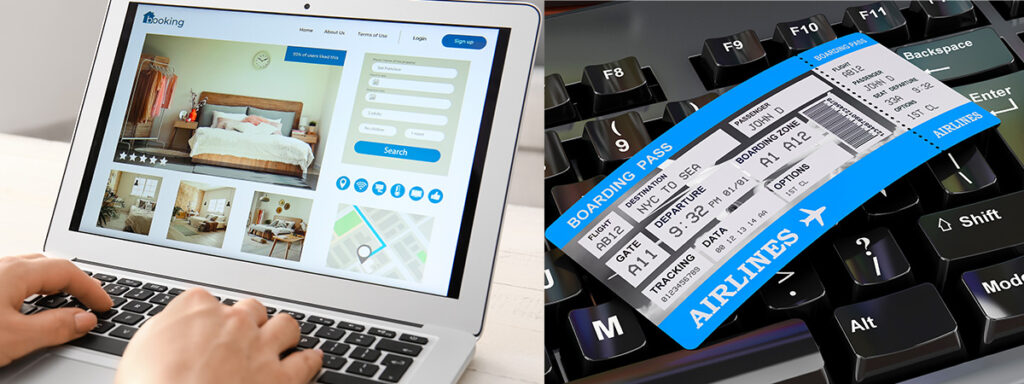
Book flights
Compare and purchase flight tickets
When planning your trip to Japan, it's advisable to start by researching flights several months in advance. Airlines often release promotional fares, especially during off-peak seasons. Use comparison sites like Skyscanner or KAYAK to get a sense of the price range. Be flexible with your travel dates if possible; flying mid-week might be cheaper than on weekends.
>> Visit Skyscanner's official website
>> Visit KAYAK's official website
Order Japan Rail Passes for each family member
Purchase your Japan Rail Pass before departure
The Japan Rail (JR) Pass offers unlimited travel on JR trains, making it a cost-effective option for tourists. However, it's only available to foreign tourists and must be purchased *before* you arrive in Japan. Determine the areas you plan to visit; if you're traveling extensively, a nationwide pass is beneficial, but if you're only exploring a specific region, consider regional JR passes. Children under 12 get a discounted pass, so ensure you order the correct type for each family member.
>>Visit Japan Rail Pass's website
Plan your attire for Japan
Check the weather at your destination on this site
Japanese weather varies significantly by season. In summer, it's hot and humid, so breathable clothes are essential. Winters, especially in the north, can be cold, requiring warm attire. If visiting during the rainy season (June to early July), pack a good umbrella and waterproof shoes. While Japan is generally casual, certain places like temples, shrines, or upscale restaurants may require modest and neat dressing.
Reserve a pocket Wi-Fi or SIM card
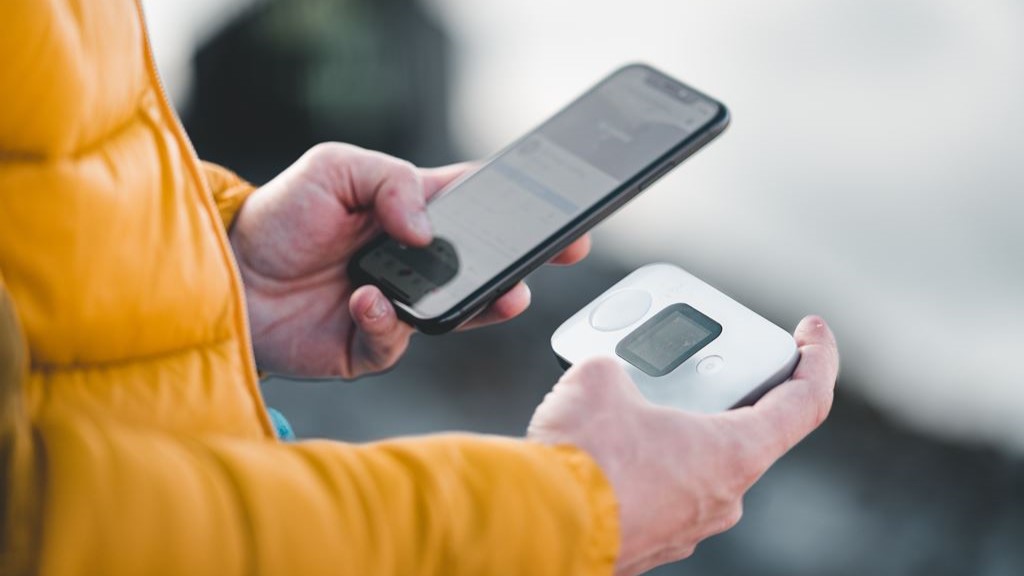
SIM card or pocket Wi-Fi is required
Beyond clothes, consider packing essentials like a universal power adapter (Japan uses Type A and B sockets), portable Wi-Fi or SIM card for internet access, and any necessary medications (with a copy of the prescription).
Which is better: a SIM card or pocket Wi-Fi?
When traveling in Japan, one essential to consider is securing internet access, especially given that many locations still don't offer free Wi-Fi. To ensure you can use your smartphone throughout your trip, you'll typically have three options: (1) a SIM card, (2) pocket Wi-Fi, or (3) the roaming service provided by your mobile company. Roaming services can be quite expensive, so we often recommend using a SIM card or pocket Wi-Fi. While SIM cards tend to be more affordable than pocket Wi-Fi, they can be trickier to set up. Pocket Wi-Fi, on the other hand, can be shared among several users, making it a favorable choice for families or groups.
▼SIM card
Advantages:
Relatively affordable.
Disadvantages:
Can be time-consuming to set up initially.
May have strict data limits.
▼Pocket Wi-Fi
Advantages:
Offers substantial data allowances.
A single device can be shared among multiple users.
Easily usable with PCs as well.
Disadvantages:
Typically more expensive.
Japan's representative services

Sakura Mobile's website
▼SIM card
>>Visit Sakura Mobile's official website
>>Visit mobal's official website
▼pocket Wi-Fi
>>Visit Sakura Mobile's official website
>>Visit NINJA WiFi's official website
>>Visit Wi-Fi RENTAL Store's official website
Book local tours as needed
Pre-book your tour and have a great trip!
Local tours offer deep insights into Japan's culture and heritage. Websites like Viator or GetYourGuide offer a variety of tours, from traditional tea ceremonies to modern pop culture tours in Akihabara. Consider unique experiences like staying with monks on Mt. Koya or taking a cooking class to learn authentic Japanese dishes.
>>Visit Viator's official website
>>Visit GetYourGuide's official website
Purchase advance tickets for popular attractions
Make a reservation to avoid crowds
Attractions like Tokyo Disneyland, Universal Studios Japan, or the Studio Ghibli Museum often have long ticket queues. Buy tickets online in advance to save time. Some attractions also have timed entry, so check the specific time slots available and plan accordingly.
▼Tokyo Disney Resort
>>Visit Tokyo Disney Resort official website
>>Visit Viator's Tokyo Disneyland page
>>Visit Viator's Tokyo DisneySea page
>>Visit GetYourGuide's Tokyo Disneyland page
>>Visit GetYourGuide's Tokyo DisneySea page
▼Universal Studios Japan
>>Visit USJ official website
>>Visit Viator's USJ page
>>Visit GetYourGuide's USJ page
Buy travel insurance

insurance concept, health, life and travel insurance
It is important to be prepared for emergencies
While Japan is a safe country, travel insurance is crucial for unforeseen events like health emergencies, travel disruptions, or lost baggage. Ensure your policy covers medical expenses in Japan, as healthcare, though excellent, can be expensive.
Here we introduce online travel insurance services that are popular worldwide.
World Nomads: An online travel insurance service widely endorsed by travelers worldwide. They offer plans that cover adventurous activities and high-risk sports.
>>Visit World Nomads' official website
AIG Travel Guard: An insurance service available to travelers all over the world. They offer a wide range of options, including cancellation protection and emergency medical insurance.
>>Visit AIG Travel Guard's official website
Share your itinerary with emergency contacts
Organize your reservation information
Keep a digital and printed copy of your detailed itinerary, including hotel addresses, train schedules, and booked tours. Share this with a trusted family member or friend not traveling with you.

